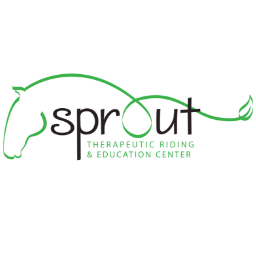
Sprout Therapeutic Riding and Education Center
40685 Little River Turnpike
ALDIE, VA 20105
Mailing Address:
PO Box 8
ALDIE, VA 20105
Phone: 703-965-8628 MAKE AN INQUIRY
View our WEBSITE
EIN: 27-3045516Founded: 2010
View our PHOTO GALLERY
Profile Last Updated January 22, 2024Public Charity
Click here to view listing(s) of the program horses we are seeking
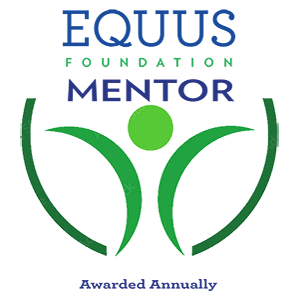
The Mentor Accreditation is awarded annually to an organization that operates at the highest standards for business and equine welfare practices, has been the recipient of an EQUUS Foundation grant for a minimum of two consecutive years, and meets the EQUUS Foundation guidelines for business and equine welfare practices outlined here.
We welcome you to donate directly to Sprout Therapeutic Riding and Education Center; Sprout Therapeutic Riding and Education Center will receive 100% of your donation made here. However, before making a donation, we encourage you to review this organization's Mentor information.
Last Updated: August 16, 2023
Sprout Therapeutic Riding and Education Center has not attained the Guardian designation for 2024.
MISSION & PROGRAMS
Mission:Our Mission:
Sprout provides equine assisted services to individuals seeking opportunities for growth.
Our Vision:
Hope, healing, empowerment and recovery through partnerships with horses.
Our organization conducts Equine Assisted Services in accordance with the EQUUS Foundation Guidelines on Qualifications of Organizations Conducting Equine Assisted Services (EAS).
Our organization provides community outreach and/or public education programs involving horses.
Our organization is directly responsible for the care and shelter of equines involved in our programs.
100% of our total programs and services are equine-related.
Our organization does not CURRENTLY use satellite, overflow, foster, and/or outreach facilities.
Equine Assisted Services (EAS):
Our organization provides the following Equine Assisted Services (EAS):
Therapeutic Mounted Services
Therapeutic Driving Services
Therapeutic Unmounted Services
Equine-Assisted Occupational Therapy/Physical Therapy/Speech-Language Pathology
9: Total number of Equine Assisted Service Providers at Sprout Therapeutic Riding and Education Center
1. Anna Koopman
FACILITY PARTICIPATION:
Sprout Therapeutic Riding and Education Center
RELATIONSHIP: Employee
SERVICES PROVIDED:
Therapeutic Mounted Services
Therapeutic Driving Services
DEGREES, LICENSES AND/OR CERTIFICATIONS
An avid equestrian her entire life, Anna Koopman brings a well-rounded competition-oriented background to the Therapeutic Driving Program at Sprout Therapeutic Riding and Educational Center. As a child she participated in 4-H and Pony Club; competed in eventing and hunters; and was on the Equitation Team at Mount Holyoke College. After college her competition focus has been on Combined Driving and is part of Team Koopman. Since 2003 they have traveled extensively competing in events from Florida to Canada.In 2010, Anna’s father, Bob Koopman was named as an alternate to the USEF Combined Driving Singles Team. They competed at the World Championships in Patroni del Vivaro, Italy with their Morgan, Whippoorwill’s Keep Dancing (Dancer). In 2011 they traded spots on the carriage and Anna took the reins competing successfully at the Intermediate level. As a way of giving back to the community Anna has recently become certified to teach Therapeutic Driving after being involved with Sprout for a number of years.
Certifications: PATH Certified Driving Instructor, PATH Certified Therapeutic Riding Instructor, ARIA Certified Driving and Recreational Riding Instructor
2. Brooke Waldron
FACILITY PARTICIPATION:
Sprout Therapeutic Riding and Education Center
RELATIONSHIP: Employee
SERVICES PROVIDED:
Therapeutic Mounted Services
DEGREES, LICENSES AND/OR CERTIFICATIONS
Brooke Waldron is the founder and Executive Director of Sprout. Brooke holds a Bachelors degree in Pre-Veterinary medicine and a Master’s Degree in Education. Brooke is a VA-state licensed teacher and an Advanced Level therapeutic riding instructor through PATH Intl. Brooke believes in the power of horse-human bond and the life-changing aspects of equine therapies. Brooke is a dedicated professional and self-proclaimed “POSSABILITARIAN,” that works to develop the ABILITIES of her students in therapeutic riding and beyond. Brooke is a PATH Intl. Certified Mentor and works to train new industry-leading professionals at Sprout.Brooke was honored as a “30 Under 30” Top Entrepreneur in Loudoun County and “Woman of Promise” by the University of Delaware for her leadership skills and innovation.
Certifications: PATH Advanced Therapeutic Riding Instructor, ARIA Certified Dressage Instructor and Barn Manager
3. Heather Henken
FACILITY PARTICIPATION:
Sprout Therapeutic Riding and Education Center
RELATIONSHIP: Employee
SERVICES PROVIDED:
Therapeutic Mounted Services
DEGREES, LICENSES AND/OR CERTIFICATIONS
Heather came to Sprout as a volunteer in 2012 and the “Magic of Sprout” led her to pursue the Riding Instruction certification through PATH International. She has always been an animal lover and after starting riding lessons as a child, horses have always had a special place in her heart. She has a B.A. in Sociology from The University of North Carolina at Pembroke and has over 12 years of professional equine experience. Heather has worked as a Barn Manager and Groom for both show hunter and fox hunter stables. She worked as a veterinarian assistant for the US Olympic team vet and she is currently a licensed Equine Insurance Agent. When Heather is away from horses she loves to spend quality time with her husband, daughter and 2 dogs. She also enjoys hiking, playing soccer and helping train foster dogs for a fresh start on a new life.Heather teaches at Sprout because horses have always been a way for her to live in the moment and forget about daily struggles. Horses have inspired her to grow both mentally and physically and she wants to be able to facilitate that feeling of pure joy and personal growth for her students.
Certifications: PATH Registered Therapeutic Riding Instructor, ARIA Certified Hunt Seat and Dressage Instructor
4. Kate Cunningham
FACILITY PARTICIPATION:
Sprout Therapeutic Riding and Education Center
RELATIONSHIP: Employee
SERVICES PROVIDED:
Equine-Assisted Occupational Therapy/Physical Therapy/Speech-Language Pathology
DEGREES, LICENSES AND/OR CERTIFICATIONS
Kate has been a licensed and registered occupational therapist in Virginia since 2001, after graduating from the University of Scranton in Pennsylvania with a degree in occupational therapy and a minor in psychology. She has provided therapy in the subacute, hospital, outpatient and home settings. She has held rehabilitation director roles for multiple programs developing teams and improving clinical rehabilitative care. Before joining Sprout she was the executive director for a multidisciplinary, all-inclusive model of care program in Northern Virginia where she oversaw all aspects of clinical care, program operations and insurance benefit management.
Kate has completed her level I American Hippotherapy Association training in order to provide therapy using equine movement as a treatment protocol. She began her passion for riding growing up in Bucks County, Pennsylvania. After moving to Northern Virginia, she volunteered at therapeutic riding facilities in the area. She enjoys seeing the immediate effect of treating with horses, the joyful spirit created by everyone involved and the outcomes that can be achieved.
Licensed Occupational Therapist
5. Lacy Warner
FACILITY PARTICIPATION:
Sprout Therapeutic Riding and Education Center
RELATIONSHIP: Employee
SERVICES PROVIDED:
Therapeutic Mounted Services
DEGREES, LICENSES AND/OR CERTIFICATIONS
Lacy grew up in Upstate, NY in the Hunter/jumper show ring. As a teenager she acquired her first horse, a very difficult off-the-track thoroughbred, who eventually necessitated an introduction to natural horse-man-ship. After seeing the possibilities this new world of horse training could provide, Lacy began retraining her horse, and herself, via Parelli Natural Horsemanship. She graduated Parelli level 3 in 2011, after spending time at both the Florida and Colorado Parelli campuses, and makes a great effort to attend continuing education courses on a regular basis. Moving to Virginia was the best thing that ever happened to her! For many years now she has taught riding lessons to children and amateur adults with a focus on riding confidently cross country & fox hunting in addition to showing and eventing. She believes good training should be based on proper ground work and flat work.
Lacy’s passion is to show people that they can achieve their riding dreams, whatever they may be and to open their eyes to many different equine disciplines from herding cattle to the show ring, from 25 mile mountain rides to eventing, from fox hunting to driving. She also takes great pride in training/re-training and starting/re-starting horses. Over the years she has successfully helped hundreds of horses and loves to see the changes they make while with her.
Lacy can often be seen in the hunt field with a trail of children & adults with her. She has her colors with both Warrenton and Loudoun Fairfax hunts after nearly 15 season combined.
Certifications: PATH Registered Therapeutic Riding Instructor, ARIA Certified Hunt Seat and Riding to Hounds Instructor
6. Nancy Davidson
FACILITY PARTICIPATION:
Sprout Therapeutic Riding and Education Center
RELATIONSHIP: Employee
SERVICES PROVIDED:
Therapeutic Mounted Services
Therapeutic Unmounted Services
DEGREES, LICENSES AND/OR CERTIFICATIONS
Nancy is a life-long rider and has been a certified riding instructor for over 14 years teaching hunt-seat equitation to emerging riders. She graduated from Sweet Briar College in 1982 majoring in religion. In 2009 Nancy received a Master in Theological Studies from Virginia Theological Seminary. Nancy completed an independent study that examined our right relationship with animals. She is thrilled to be a part of an organization that helps riders develop a trust relationship with horses through kindness and gentleness. Nancy and her husband Mike have been married for nearly 30 years and have three daughters.
Certifications: PATH Registered Therapeutic Riding Instructor, PATH Certified Equine Specialist in Mental Health and Learning, ARIA Certified Recreational Riding Instructor
7. Pam McAfee
FACILITY PARTICIPATION:
Sprout Therapeutic Riding and Education Center
RELATIONSHIP: Employee
SERVICES PROVIDED:
Therapeutic Mounted Services
DEGREES, LICENSES AND/OR CERTIFICATIONS
Pam is a life long horse person. She began teaching riding at the University of Maryland where she got her degree in business. Pam had a brief stint in the corporate world but gave it up to pursue a full time equine career. She went on to teach at and manage several different lesson programs in northern Virginia over the past 20 years. Over this time she competed her horses in local dressage competitions and became a certified USDF L dressage judge. Pam became a PATH registered instructor in 2013. She lives on her horse farm in Leesburg with her husband and two young kids who help her care for all their critters.
Certifications: PATH Registered Level Instructor, USDF L Judge, ARIA Certified Dressage Instructor Level 2
Overview of our programs involved with providing EAS to individuals with special needs:
Horses are amazing animals that have the unique ability to meet a humans' physical, sensory, cognitive, social and emotional needs in a non-clinical environment. Sprout utilizes the power of horses to meet a diverse spectrum of disabilities by creating programs that connect aspects of the horse with individual and community needs.
1. Adaptive (Therapeutic) Riding
Adaptive riding lessons are designed to improve the physical, cognitive, psychological and social skills of participants with special needs. Objective-based lessons challenge participants to meet and achieve individual goals. Therapeutic riding serves approximately 180 individuals per week with 7 instructors. Instructors plan lessons based on the life goals of the riders. As a collaborative unit, Sprout staff adapt tack and equipment based on the physical and sensory needs of the riders. The organization brings in volunteers that support the riders by "side-walking" or "horse leading." The students progress through mastery of 5 riding skills - voice aids, seat aids, leg aids, rein aids, artificial aids. As riders progress, they demonstrate increased independence, endurance, precision and quality of single or combinations of aids.
2. Adaptive (Therapeutic) Driving
Adaptive driving is an alternate program to therapeutic riding for individuals who may not meet size, stability and other requirements for riding. Adaptive driving teaches skills in an appropriately modified way that supports the life goals of the students. Similar to adaptive riding, driving requires adapted equipment and volunteers. Driving skills closely resemble riding skills where the driver works through a continuum that leads to being in independent control of the horse and carriage.
3. Equine-Supported Therapy
Equine-Supported Therapy utilizes the movement of the horse as a treatment strategy by a licensed therapist to address functional limitations in patients with disabilities. Because a Licensed Therapist is hands-on at all times, students as young as 2 may participate in this program. Equine Supported Therapy is different from Adaptive Riding in that it is focused on achieving therapy goals, using the horse and horse's movement as a treatment modality. The therapy professional works closely with the horse handler to manipulate various aspects of the horse’s movement, position, management style, equipment and types of activities to generate effective remediation protocols and to promote functional outcomes. The movement of the horse facilitates trunk lateral flexion and pelvic rotation similar to the movement of normal human walking. This dynamic creates a motor memory learning environment. Research reports that the experience of riding a horse can be thought of as a massed but variable practice of 3000 to 5000 repetitions of a postural challenge per 45 minute of treatment.
4. Therapeutic Unmounted Services
Therapeutic Unmounted Services is a hands-on model that uses the interactions and relationships between horses and humans in an environment of learning and self-discovery. It is designed to promote personal growth and the development of positive social/life skills in a fun and supportive environment. Through a curriculum of activities designed to address individual goals and needs, each equine interaction is framed to help individuals learn and grow.
These programs allow us to support individuals with diverse challenges, abilities and goals through a continuum of therapy, learning and growth. Our programs have been developed based on community needs and the abilities of our horses and we are constantly working to identify, evaluate and offer support with our resources.
Community Outreach and/or Public Education:
Sprout supports the Northern Virginia community by providing equine assisted activities to various groups including:
Community Inclusive Instruction - Sprout provides Community Inclusive Instruction (CII) to young adults as a Loudoun County Public Schools Business Partner. CII’s mission “to provide a full and efficient continuum of transition services empowering all students to make meaningful contributions to the world,” comes to life at Sprout, as students volunteer in the barn and assist with horse care.
Field Trips - Sprout hosts field trips for special education, life science and other classes in elementary, middle and high school. During these visits, Sprout staff work to merge classroom learning with agriculture, horsemanship and barn life. An example of this might be seen with a class learning measurement skills. The curriculum based life-skills (in this case, measurement), are put to use through exploratory and experiential learning by making horse treats at Sprout.
Adaptive Groups - Sprout serves adaptive groups with various needs throughout Loudoun County. Over the years, Sprout has hosted groups such as McLean Bible Church Access Ministry, Soaring Over Seven Camp, Capital Caring Hospice, Special Love, Loudoun County Parks and Rec, Loudoun Juvenile Court Service Unit, Camp Asthmatopia and Camp Highroad. Sprout takes pride in providing safe, effective and fun experiences for groups with special needs. Our combination of knowledgeable staff, trustworthy horses and supportive volunteers make Sprout visits a favorite amongst many groups!
Off-Farm Appearances - Sprout hits the road and brings learning experiences to groups/schools/events all over Northern Virginia. The staff at Sprout tailor presentations/experiences to the needs of each group. Our miniature horse, Lucky, happily engages crowds and teaches animal husbandry, leadership, boundaries, communication, and teamwork!
Research/Medical Use of Equines:
Our organization has never made, and would not ever consider making, equines available for research studies or medical training that involves invasive procedures and/or that which may cause pain or suffering to the equine.
Religious Affiliation:
Our organization does not promote religious education, religious purposes, or a specific religious faith or use donations for religious education or religious purposes; require participants to be of a certain faith; require participation in religious, instruction, activities or services; or require participation in prayer, worship, religious instruction or other religious activities as a condition of receiving social or secular services offered.
Auction Donation:
Our organization has never allowed, or would not consider allowing, an equine to be sold, transferred, released, or otherwise placed into possession of any person or organization that would cause or allow the equine to be sold at auction for slaughter.
POLICIES: ACQUISITION
Our organization acquires horses/equines from the following source(s):
Donation
Lease
Purchase from Owner
Our organization does not acquire horses/equines from the following source(s):
Auction
Kill pen/Feedlot
Return
Surrender
Seizure
Abandonment
Our organization will accept the following:
Geldings
Not Checked:
Mares
Pregnant Mares
Foals
Stallions
Only Stallions to be castrated
Additional information about our acquisition policies and practices:
Sprout is selective in the addition of equines to its program based on an effort to effectively match horses with community need.
As needs arise, Sprout works to find and acquire suitable equines via purchase, free lease or donation.
The organization has a reputation of meticulous and thoughtful horse care and therefore has a waiting list of horses to come into the program.
Owners may request Sprout's evaluation of their horses be completing a prospective horse form that reviews the equine's profile, health history, character traits, abilities and needs including the submission of a video of the horse in work. If the equine is suitable for Sprout's needs, staff will perform an on-site evaluation of the horse. This evaluation includes conformation analysis, undersaddle evaluation with owner and Sprout staff as riders, and a test on the horses’ natural reactions to various inputs (ie. items that make noises, of various colors and textures) to simulate a therapeutic riding lesson.
If the horse is found suitable, Sprout will offer a trial to the horse. During this time, the horse remains at Sprout for 30-60 days. The trial period includes acclimatization to the herd, veterinary examination, desensitization training, and riding in various areas of the farm. As the trial progresses, various levels of riders will be put on the horse, and finally, the horse will be used in its first therapeutic riding lesson.
If a horse is considered fit for the program, Sprout will complete final donation, lease or purchase paperwork with the previous owners.
POLICIES: INTAKE, ASSESSMENT & TRAININING
Prior to a horse being accepted and/or arriving at the facility, the organization requires the following with respect to the health status of the horse:A current Coggins
Vaccination records that have been administered within the last 12 months
If health records are not available or are out-of-date, our veterinarian will administer appropriate vaccinations
If health records are not available or are out-of-date, the owner is responsible for having vaccinations administered.
A health certificate signed by a veterinarian and dated no more than seven days prior to arrival is provided to our organization either prior to or upon arrival of the equine attesting to the health status of the equine
Prior to a horse being accepted and/or arriving at the facility, the organization has the following policies in place:
The owner of a potential equine is interviewed over the phone or in person prior to seeing the equine
The equine is evaluated at its place of residence
The owner completes an application/contract which constitutes the agreement between the owner and our organization
The owner is financially responsible for the shipping of the equine to and from the organization
Equines are on trial up to 60 days
The trial period may be reduced based on the equine's progress
During the trial period, the organization accepts financial responsibility for the care of the equine, including board, feed, shoeing and any necessary veterinary care, up to a fixed amount agreed upon by the organization and the owner
The trial period may be terminated by either the organization or the owner for any reason
Equines are not taken on trial
Equines are on trial for up to 30 days
Equines are on trial for 60 or more days
During the trial period, the organization accepts total financial responsibility for the care of the equine, including board, feed, shoeing and any necessary veterinary care
During the trial period, the owner/donor is financially responsible for the care of the equine, including board, feed, shoeing and any necessary veterinary care
Following arrival of the equine at the facility, the following is performed:
Physical examination by a veterinarian upon arrival
A Henneke Body Conditioning Score or other body conditioning score is assigned
Physical examination by trained barn staff
Photographs are taken of each equine upon arrival at the facility and kept with the equine's health records
Physical examination by a farrier
Physical examination by a dentist
Coggins test
Fecal test
Blood work other than Coggins
Vaccinations
De-worming
The equine is scanned to check for a microchip
The equine is microchipped if the scan indicates that there is no microchip
Upon intake, the organization has the following quarantine policy in place:
The equine is confined to a designated and separate area for isolation and quarantine at the facility for a prescribed period of time
The equine is confined to a designated and separate area for isolation and quarantine off-site for a prescribed period of time
The equine is not quarantined
The typical length of quarantine is: Up to 10 days
Horses are assessed for following skills and behaviors:
Retrieval from a pasture/paddock
Leading with a halter and lead rope
Temperament, disposition and attitude, such as rated from very calm to very high spirited
Saddling
Bridling
Lunging
Loading onto and unloading off a trailer
Mounting and dismounting
Riding at the walk
Riding at the trot
Riding at the canter
Riding by a beginner and/or unbalanced rider
Jumping
Driving (Pulling a carriage)
Tolerance to unusual objects and loud noises
Known vices, i.e., cribbing, biting, kicking, weaving, stall walking, etc
Grooming
Bathing
Clipping
Tolerance to multiple handlers at the same time
Our organization has the following policies and procedures in place pertaining to the ongoing assessment of horses in its care:
Physical examination by a veterinarian at least annually
The Henneke Body Condition score or other body conditioning score is updated at least annually
Photographs are taken of each equine annually and kept with the equine's health records
Equines at our facility may be treated by an equine chiropractor
Equines at our facility may be treated by an equine acupuncturist
Equines at our facility may be treated by an equine massage therapist
Equines at our facility may be treated by an equine nutritionist
Photographs are taken of each equine monthly and kept with the equine's health records
Our organization evaluates at least annually and maintains a written record of the weight-carrying and workload limitations for each equine that is ridden
Our organization does not evaluate the weight-carrying and workload limitations for each equine that is ridden
No equines are ridden; not applicable
The following variables are considered in determining the weight-carrying and workload limitations for each equine that is ridden:
Equine age, weight, breed, body condition, fitness, balance, health and soundness
Equine conformation to include the top line, length of back, strength and width of loin, bone density (measured by the circumference of the cannon bone just below the knee)
Size, shape, condition and angle of the hooves
Participant weight, height, body proportions, balance, fitness and riding skills as well as behavioral issues and safety concerns
Weight and proper fit of the saddle and other equipment
Terrain and footing in the working environment
Duration and frequency of working sessions, as the frequency with which an equine is subjected to maximum weight carrying and/or workload
Nature and pace of work, repetitive or varied, radius of turns, degree of incline and regularity of footing when equine is subject to maximum weight-carrying capacity
Temperature and/or weather conditions
Seasonal impact on the equines' workload and weight-carrying capabilities and limitations
Our organization does not evaluate the weight-carrying and workload limitations for each equine that is ridden
No equines are ridden; not applicable
Horses provided formal training (groundwork or riding): 2-3 times per week
Additional information about our intake, assessment & training policies and practices:
Sprout utilizes a scoring system for the trial horses' response to turn-out, stalled time, herd dynamics, ground manners, ridden/driven education and training and tolerance of various riders/drivers. This is performed by a minimum of 3 staff members and scores are averaged.
POLICIES: BREEDING
The organization has the following policies related to breeding and stallions:Our main facility where our organization conducts its programs does NOT breed equines.
One or more of the facilities where our organization conducts its programs, including foster facilities, breeds equines
One or more of the facilities where our organization conducts its programs, including foster facilities, are permitted to house stallions
POLICIES: EUTHANASIA
The organization has the following policies related to euthanasia:Our organization will never have an equine euthanized for space
Our organization will have an equine euthanized upon the recommendation of the veterinarian if the equine is a threat to itself, other equines, or people
Our organization will have an equine euthanized upon the recommendation of the veterinarian after all reasonable treatment options have been explored
Euthanasia is done on site when possible to decrease trauma from transport
Euthanasia is done at the veterinarian's facility
Disposal of the carcass is handled within 24 hours
Our organization will never have an equine euthanized under any circumstances
The following are authorized to administer the procedure for your organization in accordance with state laws:
Veterinarian
A certified euthanasia technician
Senior staff with appropriate training
Employee of animal control shelter or humane society with appropriate training
Veterinary student under the supervision of a licensed veterinarian
Not applicable. Our organization prohibits euthanasia under any circumstances
Additional information about our euthanasia policies and practices:
Sprout Euthanasia Policy
Sprout accepts that humane euthanasia of a horse deemed unfit for a Retirement Home is an acceptable procedure once all available alternatives have been explored. A horse should not have to endure conditions of care erosive of the animal’s quality of life. This is in accord with the role of the veterinarian and organization as animal advocates.
The following are guidelines Sprout uses to assist in making humane decisions regarding euthanasia of horses:
• A horse should not have to endure continuous or unmanageable pain from a condition that is chronic and incurable.
• A horse should not have to endure a medical or surgical condition that has a hopeless chance of survival.
• A horse should not have to remain alive if it has an unmanageable medical condition that renders it a hazard to itself or its handlers.
• A horse should not have to receive continuous analgesic medication for the relief of pain for the rest of its life.
• A horse should not have to endure a lifetime of continuous individual box stall confinement for prevention or relief of unmanageable pain or suffering.
The decision-making process for humane euthanasia for a Sprout equine will happen between the veterinarian, Sprout staff and Executive Director. If the equine is on a free lease, the owner will be notified as soon as the condition of the horse deteriorates. The Sprout Board of Directors will be notified within forty-eight hours of the euthanasia.
If possible, the euthanasia will occur at the veterinary clinic. If on the Sprout facility, the euthanasia will occur away from the activity site if possible. A tarp will be placed over the horse while waiting for pick up.
Techniques for Euthanasia – The following techniques for performing euthanasia of horses by properly trained personnel are deemed acceptable:
A. Intravenous administration of an overdose of barbiturates
B. Intravenous administration of a solution of concentrated potassium chloride (KCl) with the horse in a surgical plane of general anesthesia.
All Sprout equines will be cremated and the ashes will be buried on the farm during a life-honoring service.
POLICIES: RE-HOMING
View Re-homing AgreementOur organization has the following re-homing (adoption/purchase) policies and procedures in place:
All potential adopters/purchasers complete a written contract which constitutes the agreement between our organization and the new owner
Our organization does NOT re-home an equine to first time equine owners
Our organization will only re-home an equine to a location where another equine resides
Potential adopters/purchasers must visit our organization and be observed with the equine on site
The distance of a potential adopter/purchaser's home from our facility is a consideration for when re-homing an equine
Our organization conducts a site visit of the adopter/purchaser's facility before the transfer of the equine to the adopter/purchaser's facility
Potential adopters/purchasers are encouraged to do a short-term, on-site foster with the equine
Adopters/purchasers are NOT required to provide updates
Our organization has the following policies and procedures related to horses that need to be retired, are no longer able to contribute to the mission of the organization, and/or are no longer manageable:
Equines may remain at our organization for their lifetimes
Equines may be found suitable homes by our organization
Equines may be returned to their owners
In the case an equine is unsound and/or unhealthy and cannot be treated to relieve suffering, the equine may be euthanized upon the recommendation of the veterinarian
The organization will accept financial responsibility for equines in the current care of the organization that need to be retired or are no longer able to contribute to the mission of the organization if all alternatives have been explored to find the equine an appropriate placement and space is not available for the equine to remain at the organization.
Equines may be sent to auction
In the case an equine is unmanageable and demonstrates repeated dangerous behaviors, the equine may be euthanized upon the recommendation of the veterinarian
If a suitable home cannot be located within 12 months, the equine may be euthanized
The uploaded Re-homing agreement includes the following re-homing (adoption/purchase) statements:
The agreement states that the re-homed equine CANNOT be sold, adopted, transferred, auctioned, released, given away, or otherwise placed into the possession of another individual or organization under any circumstances and must be returned to our organization should the adopter decide that he/she is no longer able, or no longer wishes, to care for the equine.
The agreement reflects that any individual or organization in possession of the equine as of the date of the agreement and any time thereafter is bound to not sell the equine at auction for slaughter or allow the equine to be sold, transferred, released, or otherwise placed into possession of any person or organization that will cause or allow the equine to be sold at auction for slaughter.
The agreement states that if there is any breach of contract the equine must be returned to our organization
The agreement states that our organization reserves the right to make scheduled visits
The agreement states that adopters/purchasers are required to provide updates (photos, vet records) for three or more years
The agreement states that should the adopter decide to re-home the equine, our organization must be notified of the name, address, and telephone number of any individual or organization intending to take possession of the equine for any reason prior to the equine being placed into the possession of such individual or organization.
The agreement states that should the adopter decide to re-home the equine, our organization must grant approval of any individual or organization intending to take possession of the equine for any reason prior to the equine being placed into the possession of such individual or organization, including being provided written notification of the name, address, and telephone number of any individual or organization intending to take possession of the equine for any reason.
The agreement states that the terms of our organization's agreement will be binding on any future individual or organization taking and/or in possession of the equine for any reason.
The agreement states that re-homed equines cannot be bred
The agreement states that our organization reserves the right to make unannounced visits
The agreement states that adopters/purchasers can return an equine to our organization free of charge
The agreement states that adopters/purchasers can return an equine to our organization for a fee
The agreement states that adopters/purchasers are required to provide updates (photos, vet records) for one year
The agreement states that adopters/purchasers are required to provide updates (photos, vet records) for two years
None of the statements are included.
The organization does not re-home equines under any circumstances; our organization retains custody of our equines and ensures care of the equines for their lifetimes.
Our organization does not have the authority to transfer ownership and/or does not own any of the equines involved with our programs.
Our organization requires references from the following:
Veterinarian
Farrier
Personal/Other
Not applicable or no references required.
Transfer of ownership occurs: Immediately (at the time of adoption/purchase) or less than one year
The average equine re-homing (adoption/purchase) fee received by your organization:
Not applicable; None received
Additional information about our rehoming policies and practices:
NA
EQUINE CARE & SHELTER/FACILITY INFORMATION
Total facilities at which our organization cares for and shelters horses used in our programs: 1Our organization does not CURRENTLY use satellite, overflow, foster, and/or outreach facilities.
Sprout Therapeutic Riding and Education Center
40685 Little River Turnpike ALDIE VA 20105
Contact: Brooke Waldron
Contact's Phone: 5713674555
Contact's Email: Brooke.Waldron@sproutcenter.org
Currently operational
Total number of horses/equines currently involved with your programs, under your care, and/or owned by your organization at this facility: 20
Total number of horses at this facility INCLUDING those counted above: 23
Maximum capacity of horses at this facility: 20
Does your organization own, lease or use a part of this facility? Lease
Provide the contact information for the individual or organization responsible for investigating abuse in the county where the facility is located, including mailing address, email address, and phone information.
Loudoun County Animal Services Email: animals@loudoun.gov Address: 39820 Charles Town Pike, Waterford, VA 20197 Phone: 703-777-0406 Fax: 540-882-3984
Does your organization conduct Equine Assisted Services (EAS) at this facility in accordance with the EQUUS Foundation Guidelines on Qualifications of Organizations Conducting Equine Assisted Services (EAS)? Yes
Total number of Equine Assisted Service Providers AT THIS FACILITY, including instructors, specialists, therapists, counselors, coaches and/or facilitators (full-time, part-time, volunteer, independent contractors, and/or providers accompanying clients) that conduct Equine Assisted Services (EAS) in accordance with the EQUUS Foundation Guidelines on Qualifications of Organizations Conducting Equine Assisted Services (EAS) AT THIS FACILITY: 9
Equine Assisted Service Providers Assigned to this Facility: (see Equine Assisted Service Provider Section below for details)
1. Anna Koopman
2. Brooke Waldron
3. Heather Henken
4. Kate Cunningham
5. Lacy Warner
6. Nancy Davidson
7. Pam McAfee
9 -> 7 - The total number of Equine Assisted Service Providers entered for this facility does not match the number of Equine Assisted Service Providers assigned to this facility under in the Equine Assisted Service Provider Section
Additional information about this facility:
Sprout has indicated that the facility accommodates 20 horses who need stalls on rotations.
The additional 3 horses on the farm are housed by the farm owner and separate from Sprout operations. These horses have their own field, care and shelter but exist on the farm on separate land from Sprout.
Sprout Therapeutic Riding and Education Center
Veterinarian Information
Veterinarian: Alexis Theiss
Clinic Name: Paragon Equine Veterinary Services
P.O. Box 444
Upperville VA 20185
Phone: 540-733-3008
Overview: Sprout Therapeutic Riding and Education Center (*Main)
Total number of horses/equines currently involved with your programs, under your care, and/or owned by your organization at this facility: 20
Total number of horses at this facility INCLUDING those counted above: 23
Maximum capacity of horses at this facility: 20
Total acreage dedicated specifically to the horses: 20
Our organization has use of the following at this facility:
Structures/Barns: 1 Run-in sheds: 4
Pastures: 8 Paddocks/Pens/Turnout Areas: 1
Uncovered Outdoor Rings: 1 Covered Outdoor Rings: 0 Indoor Rings: 1
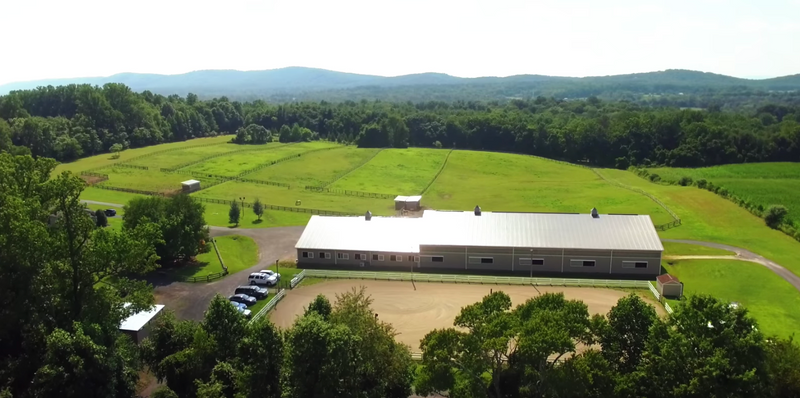
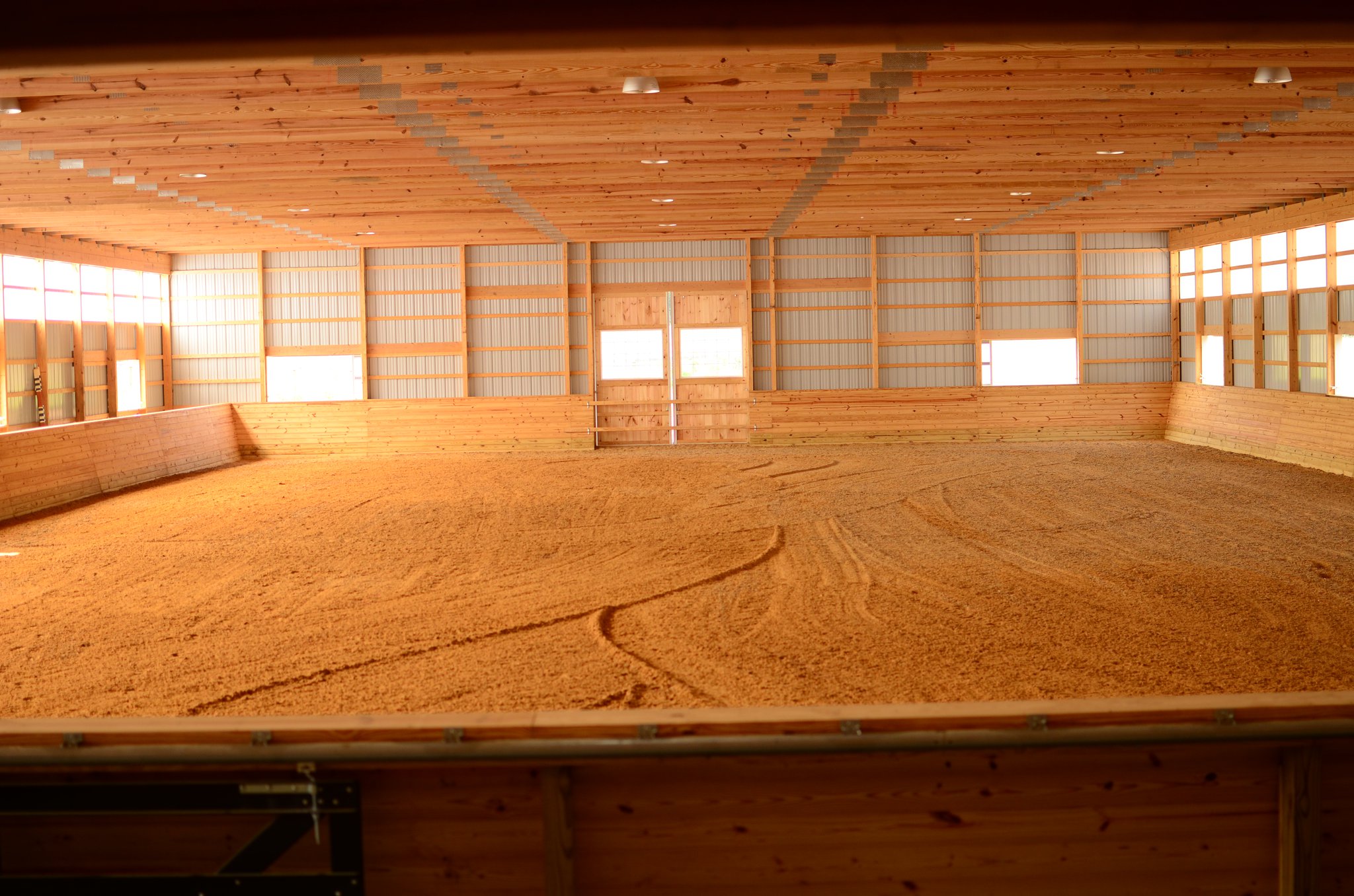
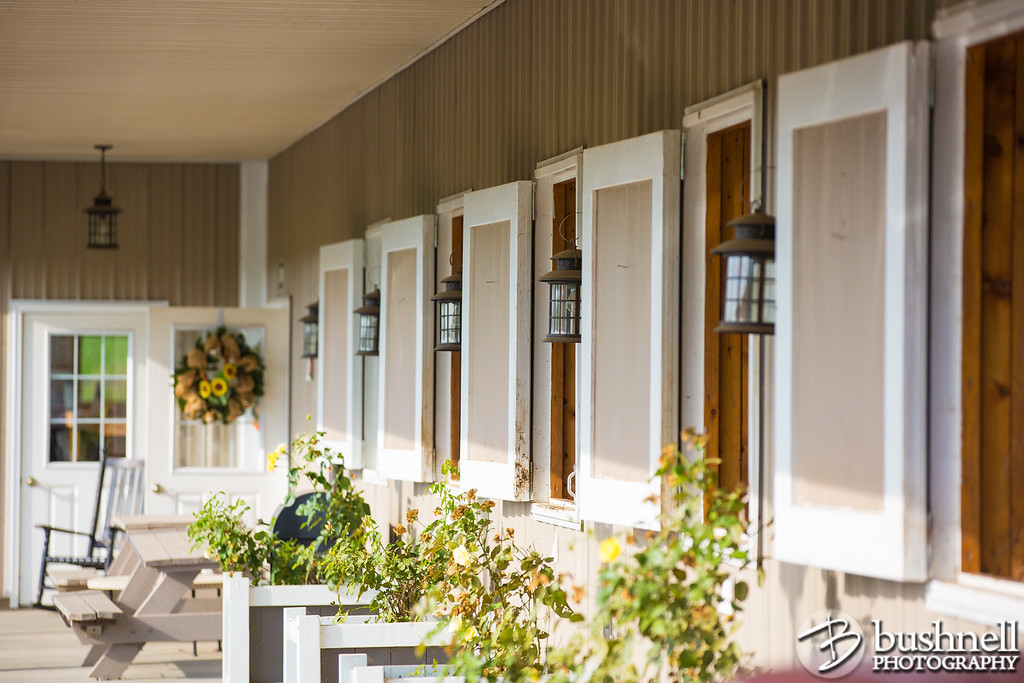
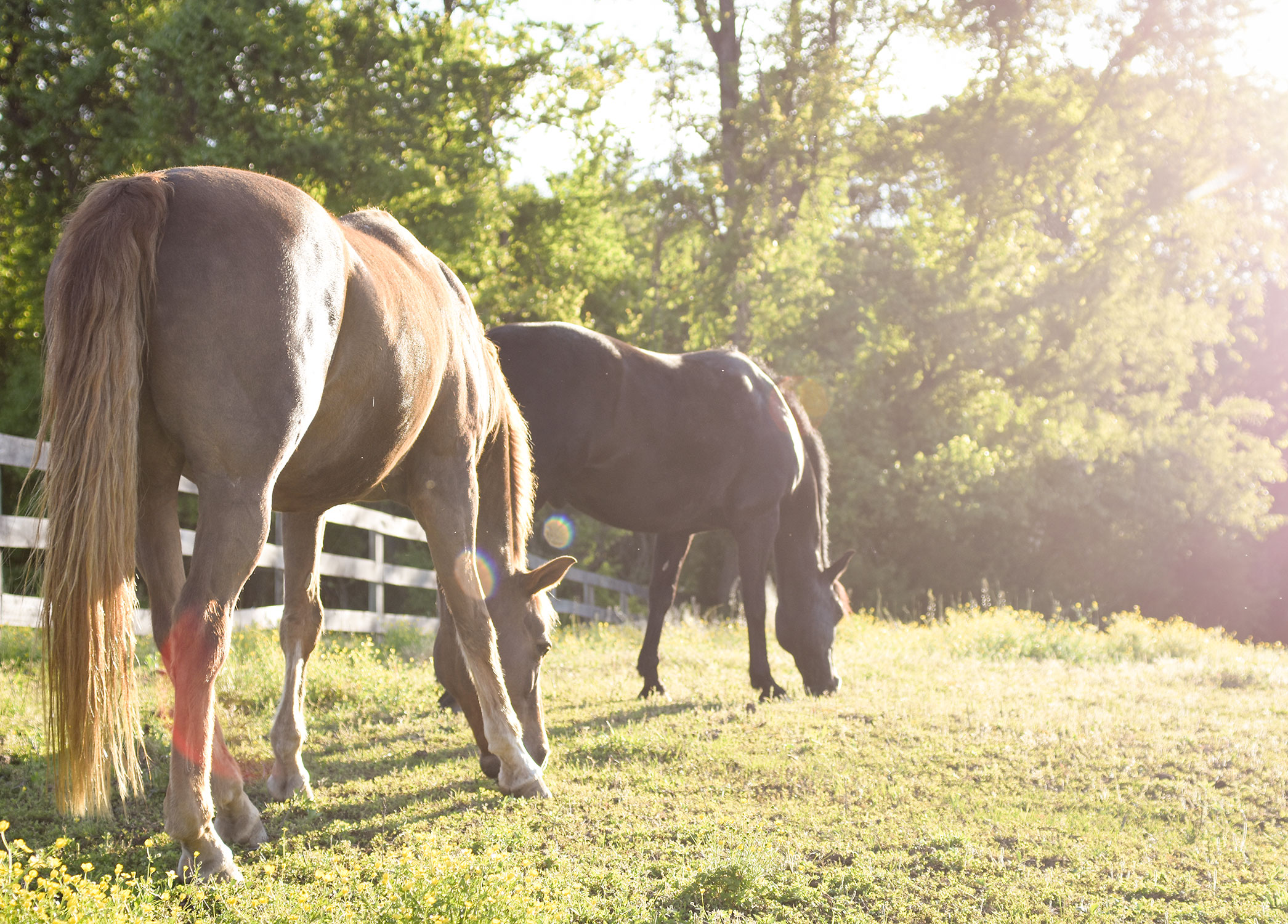
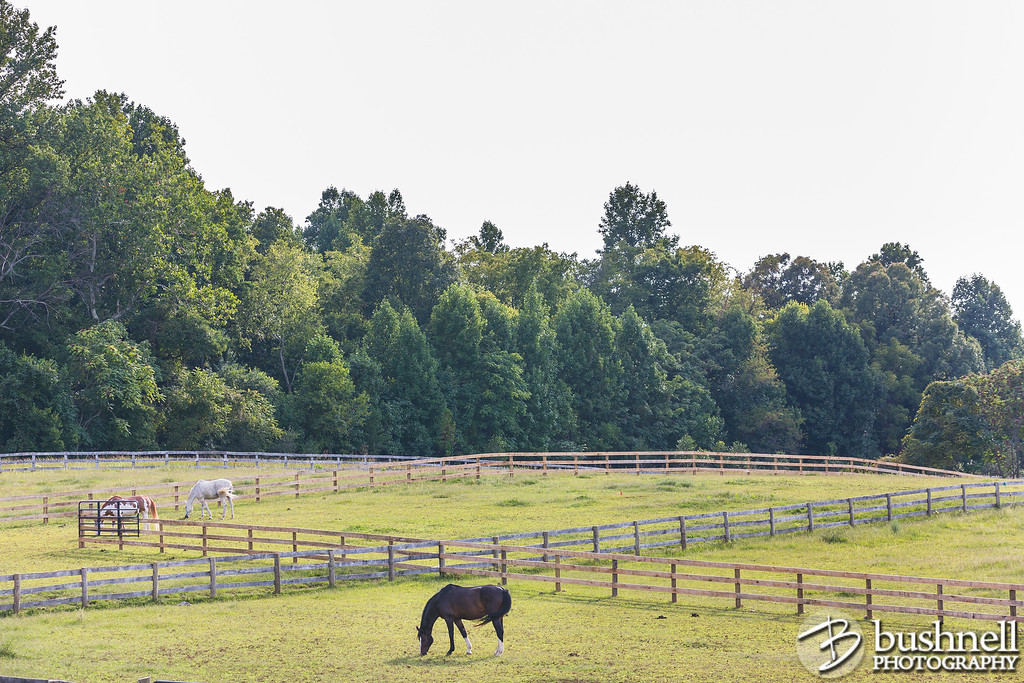
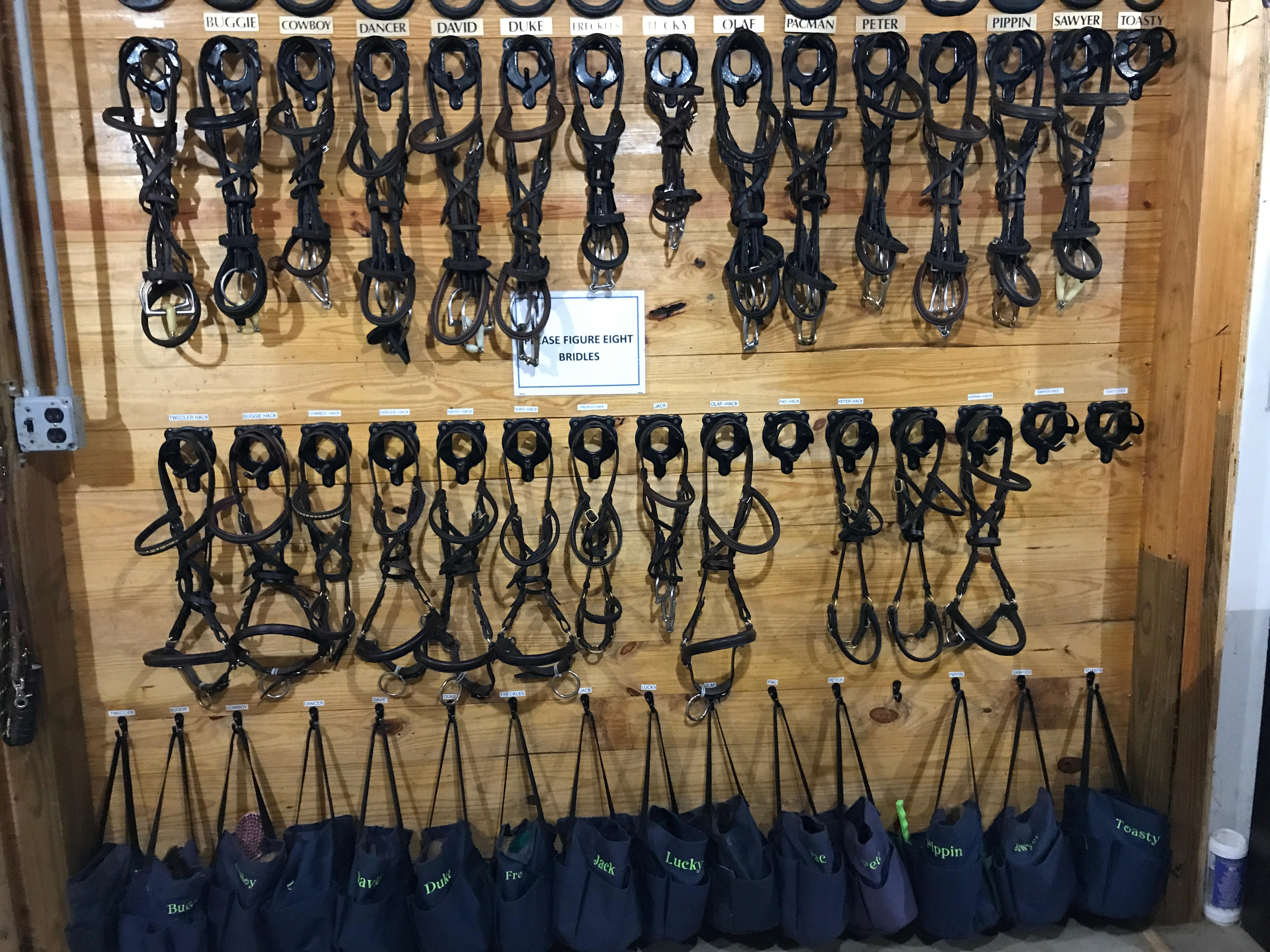
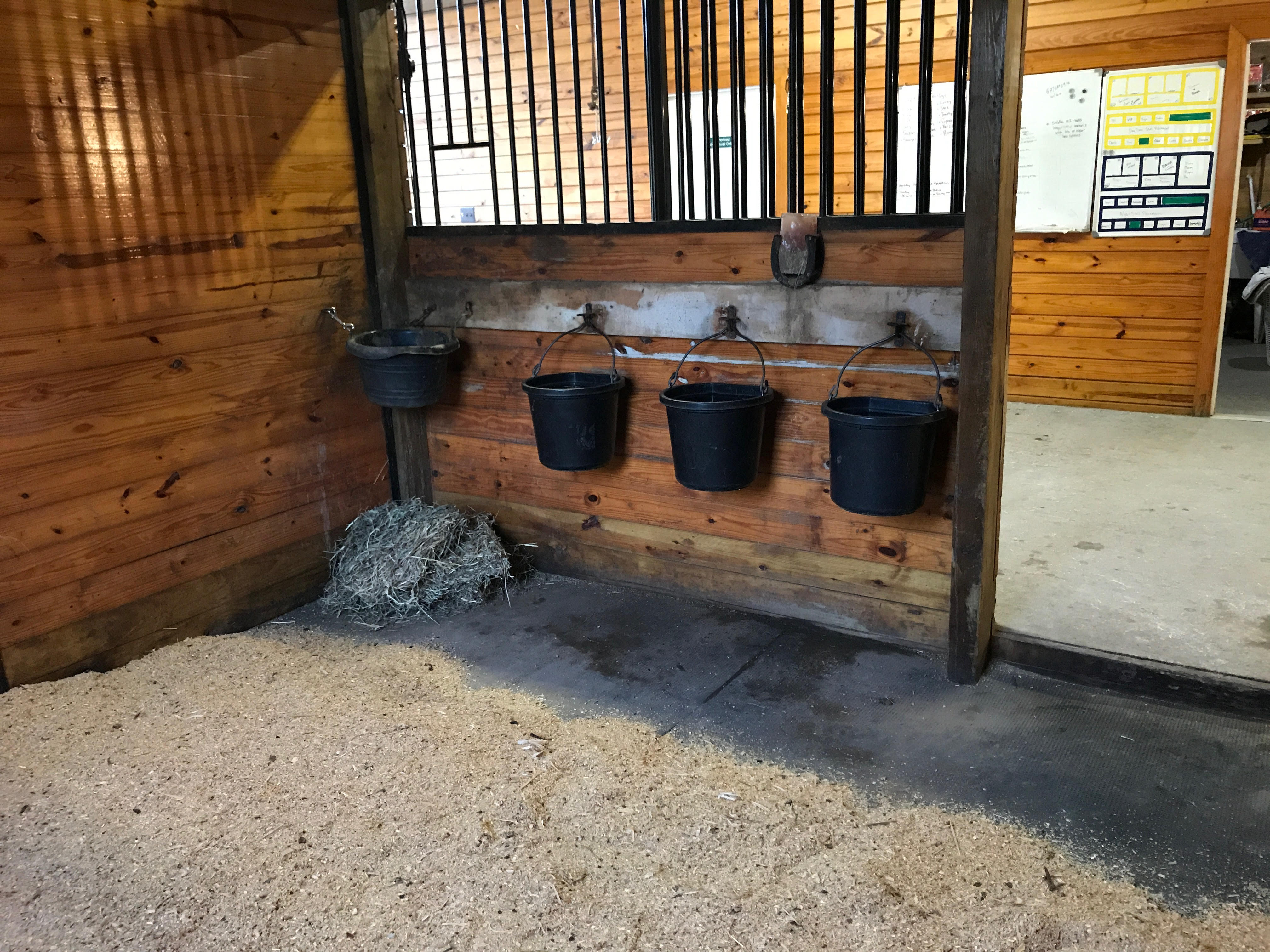
Regarding structures at this facility where horses are stalled:
Do horses have assigned stalls in the structure(s)? No
Do all stalls/enclosures allow horses to lie down, stand up and turn around? Yes
Is there adequate ceiling & beam height (a minimum of 12 feet above the tip of the horse's ear) when standing in all stalls/enclosures? Yes
How often are the stalls/enclosures cleaned? 6-7 Days a Week
Are floors constructed and maintained for both good drainage and traction? Yes
Is there a ventilation and circulation system in place to control temperature and prevent buildup of toxic gases? Yes
Is wiring inaccessible to horses and maintained for safety? Yes
Are fire prevention/protection measures (fire alarms, extinguishers and sprinkler systems) maintained and in good working order? Yes
Is there adequate lighting to ensure safety in all areas of facility? Yes
Are emergency contacts, including veterinarian contact information, conspicuously posted in easily accessible locations? Yes
Are human and equine first aid kits easily accessible? Yes
How many hours per day, on average, are horses stalled? 4-8
How many hours per day, on average, are horses turned out:
Equines are out 9 to 15 hours per day
Equines are out 24/7 except they are brought in to feed
The following describes the pastures at this facility:
This facility has a written plan in place for pasture management, which includes guidelines for seeding, fertilizing, irrigation, mowing, dragging, harrowing, manure removal, removal of debris, the control of poisonous plants, and a schedule for cleaning
A dedicated staff person(s) is responsible for pasture management
All pastures are fenced to prevent escape or injury
Fencing checks, such as broken or missing planks, loose fence posts, exposed or loose nails, detached wires, etc., are done regularly
Pastures are rotated
Pastures have natural protection for equines (i.e., trees)
Pastures have man-made protection for equines (i.e., shelters)
This facility does not have pastures where equines can graze on pasture grass
Barbed wire is used for fencing
Electric fencing is used; electric wires or tape fence are visibly marked
The following describes the turnout areas other than pastures at this facility:
This facility has a written plan in place for the maintenance of turnout areas, which includes a schedule for cleaning, manure removal, and dragging
A dedicated staff person(s) is responsible for the maintenance of turnout areas
All turnout areas are fenced to prevent escape or injury
Turnout areas have man-made protection for equines (i.e., shelters)
Fencing checks, such as broken or missing planks, loose fence posts, exposed or loose nails, detached wires, etc., are done regularly
This facility does not have turnout areas
Barbed wire is used for fencing
Electric fencing is used; electric wires or tape fence are visibly marked
The following policies and procedures are in place at the facility to restrict public access and to keep horses safe:
The property owner, staff member or caretaker lives on the premises and ensures that public access is restricted and is responsible for the security of the facility and equines
Equines are checked overnight
By Appointment Only signs are posted.
No Trespassing signs are posted
Hold Harmless signs are posted
Authorized Personnel Only signs are posted
Entrance gates are locked at night
Visitors are only permitted at specific times
Visitors are only permitted in specific areas
The property is fitted with a security system that is monitored internally by staff (or the property owner)
The perimeter of the property is fully fenced
A security guard is present at night
The property is fitted with motion lights
The property is fitted with a security system monitored by police or a professional service
Equine Care/Emergency Preparedness: Sprout Therapeutic Riding and Education Center (*Main) 2024 and 2023 This section is required.
Horse Health Care/Barn Management Records: What system is used to collect and store health/horse care records?
Onsite computer with cloud-based backup storage system
The following items are consistent with our feed management plan and practices:
Equines are provided with individualized feeding plans, including supplements, according to age and any health issues
Feed plans are determined in consultation with a veterinarian
Supplement plans are determined in consultation with a veterinarian
Equines are fed in individual stalls
Staff and volunteers are trained in proper feed measurements and protocols and observed periodically to ensure they are feeding correctly
The feed chart is centrally located and updated as needed
The area(s) where hay, feed, grain, and supplements are stored are kept clean, free of debris and chemicals, and protected from weather and other animals in rodent-proof and mold-proof containers and grain bins
Feed, supplements and hay types are clearly labeled
Water sources, i.e., buckets, troughs, automatic waterers, etc. are kept clean, free of debris and chemicals, and protected from weather and other animals
Medications are kept in a locked, climate-controlled area
Equines are fed in groups
Do horses have access to clean drinking water at all times? Yes
Hoof Care: How often is hoof care provided for each equine? Every 4-8 weeks and when an issue arises
Dental Care: How often is dental care provided for each equine? Annually and when an issue arises
Horse checks: How often are equines visually and physically checked by personnel at the facility? Every day or 6 days a week
Parasite Control: Our organization has the following worming protocols in place: (Check all that apply
Fecal testing is performed prior to the use of a de-wormer.
Fly/Insect Control: What remedies are used to control flies and insects?
Fly parasites
Fly Traps and Tapes
Fly Spray Repellent
Fly Masks
Fly Sheets
Fans
The following represent the biosecurity practices in place at facility:
Our organization follows the AAEP's Biosecurity Guidelines and/or the UC Davis Biosecurity Guidelines
Our organization follows the biosecurity guidelines of our veterinarian
Sick, affected and/or quarantined equines do not have contact with other equines or other animals
The organization has a written biosecurity plan
All staff are trained in best practices related to biosecurity
All volunteers are trained in best practices related to biosecurity
A specific individual is assigned to care for sick, affected and/or quarantined equines
Sick, affected and/or quarantined equines are cared for last if the caretaker must also care for healthy equines
Sick, affected and/or quarantined equines do not have contact with other equines or other animals
Restricted access signs are posted at primary points of access to sick, affected and/or quarantined equines
Hand sanitizers and footbaths are available at all primary points of access to sick, affected and/or quarantined equines
Manure and bedding from sick, affected and/or quarantined equines is disposed of in specific areas designated for infectious materials - not put in open air piles, and not spread on pastures
Stalls, aisle ways, and common areas are disinfected after conclusion of the quarantine
Trailers/vans used by sick, affected and/or quarantined equines are cleaned and disinfected after each use and cleaning takes place away from where equines are sheltered
Equipment used by sick, affected and/or quarantined equines is not shared and is clearly labeled
Shared equipment used by sick, affected and/or quarantined equines is cleaned of organic debris and disinfected after each use
Latex gloves are worn when working with sick, affected and/or quarantined equines
Personnel are required to leave the facility (or shower and change clothing) after working with quarantined equines
Equines are not quarantined on arrival.
The following represent the manure removal practices in place at facility:
Manure is hauled, sold or given away
Our organization adheres to the manure management guidelines set by state and/or local authorities
Manure is stored in dumpster(s)
Manure is piled in an area where equines are not located
Manure piles are covered
Manure piles are composted or spread on pastures
The following steps are taken to help staff and volunteers readily identify each horse on the property:
Photos are located on the stall
Equines wear halters with nametags
A notebook or binder with photos and information on each equine is easily accessible
A map/diagram is posted showing the location of each equine with equine names and photos
Equine photos and profiles are available on the website
Staff and volunteers are provided with an information packet with equine profiles, including photos and detailed descriptions
Staff/volunteers are provided training on conformation, markings, colors, and breeds
Team leaders work with new staff/volunteers until they are able to identify the equines
Equines are assigned the same stall/location each day
Name plates are located on the stall
Our organization has the following policies and procedures in place pertaining to tack, apparel and equipment:
Saddles are shared
Saddle pads are shared
Blankets, sheets and turn out apparel are fitted and utilized for each equine appropriate to the equine's needs and the weather conditions
Blankets, sheets and turn out apparel are cleaned regularly as needed
Tack is cleaned after each use
Tack is inspected for overall working condition before each use by trained personnel
Tack is assessed for fit before each use by trained personnel
Tack is assessed for fit by trained personnel when an equine's body condition changes
Tack is assessed for fit by trained personnel when an equine's disposition changes
This facility enlists the services of a professional saddle fitter at least once a year
Assigned tack is clearly labeled
Tack is stored in a climate-controlled location
Helmets are shared
Helmets are cleaned/disinfected after each use
Helmets are replaced after a fall
Helmets are replaced at least every five years.
All equines have specifically assigned tack, apparel and equipment that is not shared
Bridles are shared
Bits are shared
Blankets are shared
Sheets are shared
Turnout apparel is shared
Halters are shared
Tack is cleaned weekly
Tack is cleaned only when needed
No equines are ridden; not applicable.
Emergency Preparedness: Sprout Therapeutic Riding and Education Center: *Main This section is required.
The following plans, policies, and procedures are in place at the facility to handle emergencies and address weather related issues, fire safety procedures, and/or any additional hazardous scenarios the facility could potentially experience:
Emergency procedures are posted prominently
Emergency phone numbers are posted prominently
The facility owns or has access to a generator
The facility maintains at least two weeks of hay, feed, shavings and medications
The facility collects and maintains medical information from staff, volunteers, and clients
The facility maintains appropriate liability and/or workers' compensation insurance
All staff/volunteers are briefed regularly on emergency preparedness/safety procedures
The organization has a written emergency preparedness/safety plan (EPP)
Local fire department and/or the state's emergency planning department procedures
Medical emergencies for clients, staff, and volunteers
Medical emergencies for equines
Evacuation plans
Power outages
Fire
Natural Disasters - thunderstorm, hurricanes, earthquakes, tornados, etc
Terrorist attacks
Protocols to notify emergency personnel
Building/facility exit plans
The facility follows the specific procedures to help PREVENT emergency situations:
Smoking is strictly prohibited
Permanent or temporary structures where equines are stalled are kept free of dust, cobwebs, trash, cleaning rags, and other flammable items
Aisles and doorways are kept clear
NO SMOKING signs are posted prominently
Hay is stored away from permanent or temporary structures where equines are stalled
Heaters with automatic shutoff settings are used
How often are the following checked or performed?
Fire Extinguishers are checked: Annually
Smoke detectors are checked: Annually
Electrical Systems are checked: Daily
Fence lines are checked: Daily
Turnout Areas are checked: Daily
Sprinkler systems are checked: Not at all/NA
Fire drills are conducted: Quarterly
Review of safety protocols with staff are conducted: Quarterly
Review of safety protocols with volunteers are conducted: Quarterly
The Emergency Preparedness Plan is reviewed and updated: Annually
Equine Transportation
2-horse van/trailer with truck:
2 Owned onsite Access onsite but not owned Access offsite;
3-horse van/trailer with truck:
Owned onsite Access onsite but not owned Access offsite;
4-horse van/trailer with truck:
Owned onsite Access onsite but not owned Access offsite;
6-horse van/trailer with truck:
Owned onsite Access onsite but not owned Access offsite;
8-horse van/trailer with truck:
Owned onsite Access onsite but not owned Access offsite;
10-horse van/trailer with truck:
Owned onsite Access onsite but not owned Access offsite;
